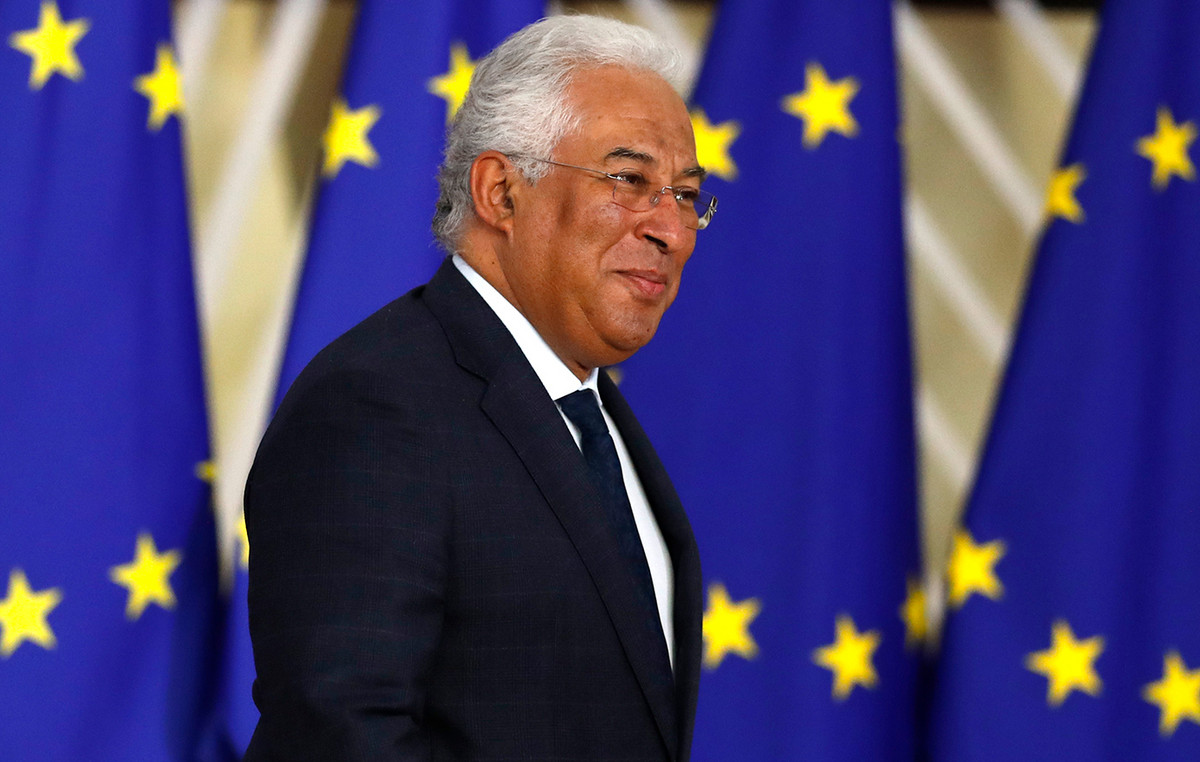In just over five years, the price of a liter of common diesel rose by around 121.73%, according to data from the National Agency for Petroleum, Natural Gas and Biofuels (ANP).
In November 2016, one month after Petrobras adopted the import parity price (PPI) for fuel, the average value for consumers was R$2,993. Now, according to the latest ANP price survey, it reached R$6,630, an increase of R$3,637.
A calculation by professor and economist at the Getúlio Vargas Foundation (FGV) Mauro Rochlin points out that, in the same period, inflation was 32.88%. That is, even if corrected, the price of diesel grew by 68%.
According to the economist, if the value of the fuel were adjusted only for inflation, it would today cost, on average, R$ 3.97 at gas stations.
Even with the effects of parity for Brazilians, for Rochlin, the adoption of the policy is important for Petrobras’ position in the market and in future investments.
In this case, according to the economist, some options to curb the impact on the consumer’s pocket would be the direct subsidy from the government or the use of the company’s own dividends to pay off this difference.
“I believe the best policy is to let the market work and subsidize programs for the low-income population. The best thing is for the State to target those who really need it, such as a subsidy for cooking gas, for example”, she defends.
However, another issue pointed out by the economist is a distortion that a possible diesel subsidy measure could generate in the market. “By subsidizing diesel, you are indirectly discouraging a clean energy market, for example. And this type of benefit indiscriminately ends up favoring those who don’t need it,” he says.
The PPI for diesel was adopted by Petrobras in October 2016. At the time, the company announced that “the decision of the executive committee took into account the growing volume of imports, which reduces Petrobras’ share, and also the seasonality of the market world oil.”
According to the company’s statement in 2016, an increase in imports had been observed, especially in the case of diesel, in which the entry of products already corresponded to 14% of the country’s demand. In the case of gasoline, imports had grown 28% per month between March and September 2016.
Data from Petrobras’ Production and Sales Report, referring to the first quarter of 2022, shows that the company imported 10.4% of the entire volume of diesel it sold to the domestic market.
According to Petrobras, the company sold 716,000 barrels per day (Mbpd) of fuel to the domestic market, while imports amounted to 75 Mbpd.

In an upward trend over the last few years, the price of diesel has a direct and indirect impact on the cost of most products sold in the domestic market. That’s what he explained to CNN FGV economist Joelson Sampaio.
For Sampaio, diesel, a fuel used mainly by truck drivers, can be considered one of the “pillars of the Brazilian economy”, due to the country’s dependence on road transport and, consequently, on land transport.
In addition to parity, he points to high inflation as responsible for the rise in fuel prices.
“We can say that a large part of Brazilian products are distributed by highways, it is our main internal modal. And with the price of diesel getting higher and higher, the cost of freight becomes more and more expensive, logically making the products more expensive for the final consumer, the Brazilians”, he pointed out.
THE CNN , the president of the National Transport Association of Brazil (ANTB), José Roberto, defended that the current pricing policy used by Petrobras needs to be reviewed. According to him, the category has been warning for years about the need for changes to another economic format.
“As long as the price of Brazilian fuel is aligned with international parity, we will not change this scenario. The category has been warning for years. This scenario is not new for truck drivers, we have been noticing these consecutive increases for a long time. The readjustments are constant and the parity needs to be reviewed immediately”, argued the president of ANTB.
In May 2018, a truck drivers strike lasted ten days and paralyzed services such as the supply of fuel and the distribution of food and medical supplies.
The category started the stoppage to demand a reduction in diesel oil prices, which rose more than 50% in 12 months. At the time, the pressure made the federal government subsidize a reduction of R$ 0.46 in the liter of diesel, for 60 days.
In the opinion of Rodrigo Leão, a researcher at the Institute for Strategic Studies of Petroleum, Natural Gas and Biofuels (Ineep), the PPI proved to be inefficient for what was initially proposed, such as increasing the competitiveness of the oil market and avoiding shortages.
“This measure is not adopted in a generalized way, there is a set of other measures that are adopted on price in other countries depending on variables, such as exchange rate, refining capacity, on how to conduct the pricing policy. In relation to the PPI, countries and companies that adopt a market structure are completely different from the Brazilian market”, says Leão.
The specialist defends a discussion about the parity policy itself, since, for him, it is necessary to understand the complexity of the oil chain and of Petrobras itself.
“I think there are a lot of attempts to simplify a debate that is very complex, has many nuances. The oil industry is very diverse. Other measures can be adopted, international research shows this, the Temer government itself, in 2018, made an articulation for months to deal with the stoppage of truck drivers”, he points out.
THE CNN contacted Petrobras to talk about the fuel parity policy and is awaiting a return.
Petrobras results
Last week, Petrobras released the results for the first quarter of 2022, which showed a net profit of R$44.5 billion. According to the state-owned company, the good result reflects better operational efficiency during oil extraction.
“This financial result is due to the fact that we now have a sanitized Petrobras, which has reduced debt payment charges, invests responsibly and operates efficiently. All this generates economic development throughout the production chain, generating employment, income and tax collection for the country”, highlights the president of Petrobras, José Mauro Coelho
“This quarter, we paid one and a half times the value of our net income to the federal government, states and municipalities. Petrobras is distributing the fruits of its value creation to the Brazilian population,” he concluded.
Source: CNN Brasil
I am Sophia william, author of World Stock Market. I have a degree in journalism from the University of Missouri and I have worked as a reporter for several news websites. I have a passion for writing and informing people about the latest news and events happening in the world. I strive to be accurate and unbiased in my reporting, and I hope to provide readers with valuable information that they can use to make informed decisions.







